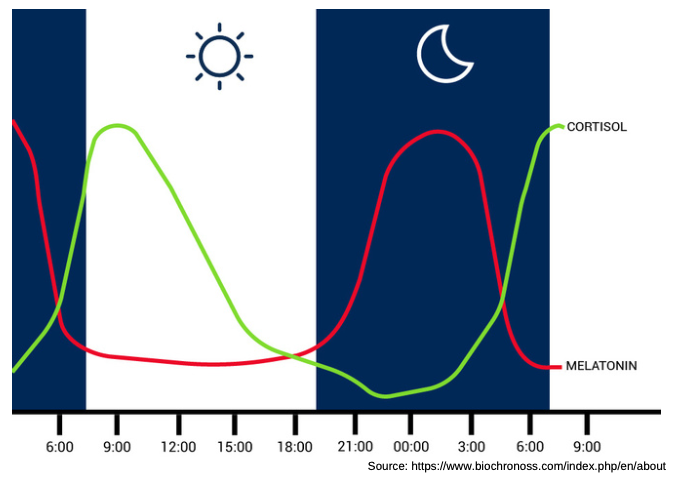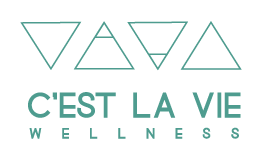Sleep 101: the Basics

by Lyne Desforges
Registered Holistic Nutritionist & Culinary Nutrition Expert
Sleep: The Neglected Pillar of Health
Do you ever have trouble falling asleep even when you’re tired? Do you have trouble getting back to sleep once you’re awake? Ever wake up and not feel refreshed after a night’s sleep? You are not alone.
Over the years, we have noticed a significant increase of sleep-related issues with our patients and clients, including insomnia, sleep apnea, restless leg syndrome (RLS), narcolepsy and chronic stress.
Our current cultural landscape of high stress, anxiety and the widespread use of smart phones and other technologies, has made sleep even more elusive. The statistics are sobering. According to Statistics Canada, 1 in 2 adults have trouble going to sleep or staying asleep. This may negatively affect their relationships, their ability to perform tasks and make sound decisions.
Sleep Basics: The 4 Stages of Sleep
Stage 1: Light transitional sleep
You drift in and out of sleep and can be woken easily. This stage lasts 5-10 minutes. Think of it as the typical catnap.
Stage 2: More stable sleep
This is still a light sleep. At this stage, your heart rate and brain waves slow down and your body temperature drops. This is more like a power nap.
Stage 3: Deep sleep
It is harder to wake up at this stage and you will feel disoriented if you do. Growth hormone is released and the body repairs and regrows tissues, builds bone and muscles and strengthens the immune system. This is when you build up energy for the next day.
Stage 4: REM sleep (Rapid Eye Movement)
Usually occurs 90 minutes after falling asleep. You can have intense dreams during REM sleep, as your brain is more active. Your eyes jerk quickly in different directions, your heart rate and blood pressure increase and breathing becomes fast, irregular, and shallow. REM sleep plays an important role in learning and memory function. This is when your brain consolidates and processes information from the day before, so that it can be stored in your long-term memory. The first period of REM typically lasts 10 minutes. Each of your later REM stages gets longer, and the final one may last up to an hour. Babies can spend up to 50% of their sleep in the REM stage, compared to only about 20% for adults. Adults have about 5-6 REM cycles per night.
Sleep Basics: The Circadian Rhythm
 The circadian rhythm is your body’s natural biological clock. It occurs within a 24-hour cycle that corresponds with day and night.
The circadian rhythm is your body’s natural biological clock. It occurs within a 24-hour cycle that corresponds with day and night.
Two main hormones are an essential part of your circadian rhythm:
Melatonin: the sleep hormone
Cortisol: the awake and alert hormone
As the evening progresses and the light fades, the body’s internal clock signals melatonin to be released by the pineal gland. As melatonin rises cortisol begins to decrease. In the morning, melatonin production decreases and cortisol increases. Melatonin and cortisol should work as opposites as indicated by this graph.
Are You Getting Enough Sleep?
General recommendations for adults is 7-8 hours of sleep per night. Less than 7 hours of sleep, and you start seeing some negative effects on the brain. According to Matthew Walker, a PhD researcher on sleep, men who only have 5-6 hours of sleep per night will have testosterone levels of that of someone 10 years their senior. Babies, children and teenagers need more sleep. A study was done in Singapore where the start of the school day was delayed by 45 minutes so teenagers could get more sleep. They observed that delaying school start time resulted in sustained benefits on sleep duration, daytime alertness, and mental well-being even within a culture where the push for academic success will often be to the detriment of sleep.
You are sleep-deprived if…
You are dozing off at the dinner table, while driving, during conversation, or in front of TV.
You are getting enough sleep if…
You wake easily without an alarm, go through your day without feeling sleepy, don’t get drowsy when sitting quietly or reading.
Research by Dr. Richard Bootzin, professor of psychology and director of the insomnia clinic at the Arizona Sleep Disorders Center found that people who get 7-8 hours of sleep each night live longer, happier, healthier lives than those who skimp on sleep.
Causes of Poor Sleep
- Stress, Excessive Worry, Anxiety,

- Depression, Distress & Trauma
- Medication Side Effects
- Poor Sleep Hygiene
- Lack of Exercise
- Hormonal Fluctuations
- Poor Diet
- Lack of Social Engagement
- Lack of Sunlight Exposure
- Travel or Night shift Work
- Pain & Discomfort
- Uncomfortable Bedding & Mattress
- Caffeine & other stimulants
- Alcohol
According to Dr. Karl Doghramji, MD, alcohol is used by 28% of insomniacs to help them fall asleep. However, research has shown that alcohol consumption reduces REM sleep during the first portion of the night, it impairs sleep during the second portion of the night and it can reduce overall sleep time. Alcohol’s negative effects on sleep are even observed when it is ingested in the late afternoon. Alcohol increases the severity of the obstructive sleep apnea, and may cause snoring and induce apneas in individuals without a history of the syndrome. Relying on alcohol for sleep induction may lead to alcohol dependence and alcoholism.
Effects of Poor Sleep
- Depression and other mood disorders
- Increase in Appetite (20% more caloric intake the next day)
- More inflammation, low immunity and a shorter life span
- Lack of focus/concentration & more accidents.
- Daytime sleepiness and low energy levels.
- Increased risk of cardiovascular disease, breast cancer, high blood pressure and Alzheimer’s disease
- Strained relationships
In this research, scientists examined two groups of mice. Both groups had free and easy access to sugar water and fatty foods for the whole study, but one was able to sleep as much as they wanted while the other group was kept awake for six hours each night. After just one six-hour sleep-deprivation cycle, the sleep- deprived mice had higher blood sugar and higher liver triglycerides. These are both early warning signs of diabetes.
Support for Sleep
There are so many ways to improve your quantity and quality of sleep. Check out our other blogs in our Sleep 101 series: Traditional Chinese Medicine, Top Tips for Better Sleep, Nutrient for Better Sleep.
If you want more support consider seeing one of our healthcare practitioners or booking an appointment for some acupuncture, reflexology, or reiki. These are all gentle modalities that can help children and adults alike. Feel free to email us anytime for more info.

Educating, motivating and inspiring have always been important aspects of my professional journey. Through workshops, cooking classes, customized menus & recipe books, and online programs, I guide clients towards healthier food choices and eating habits.
